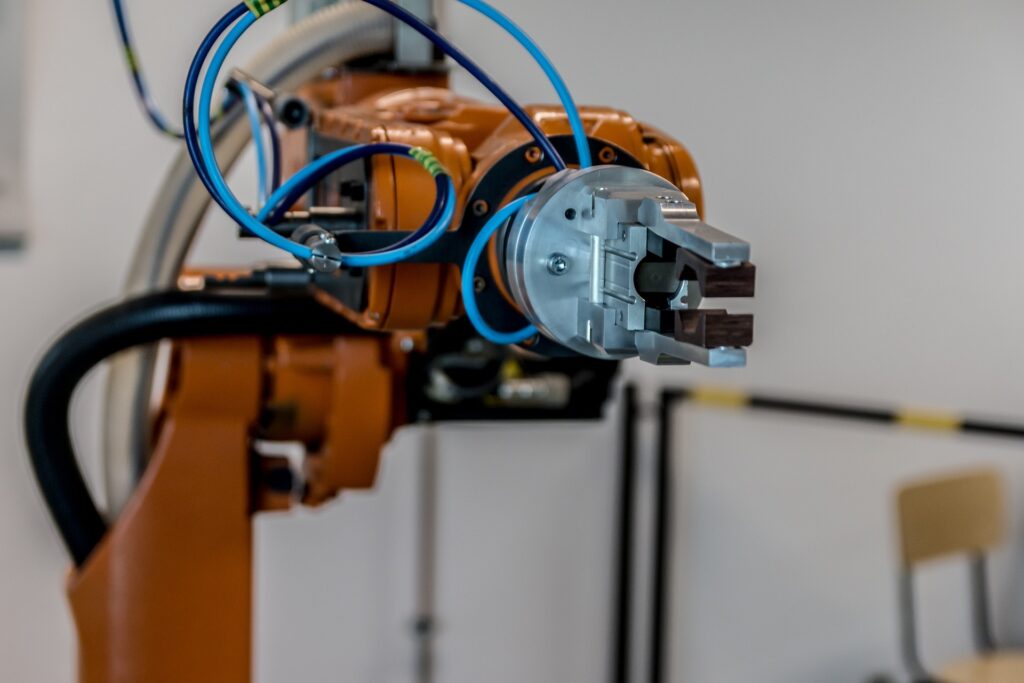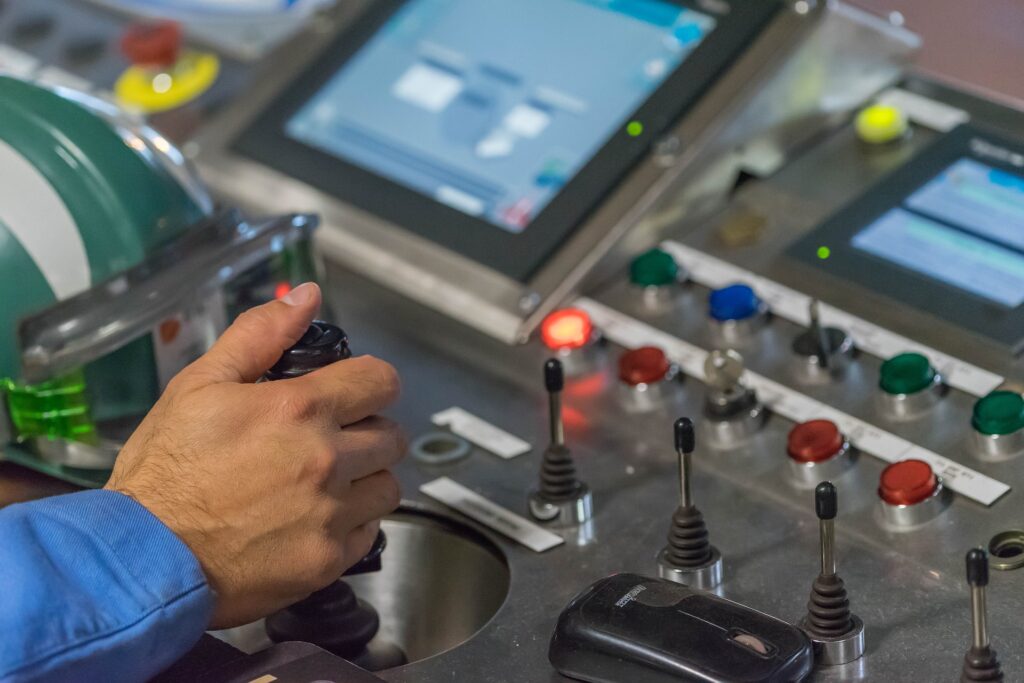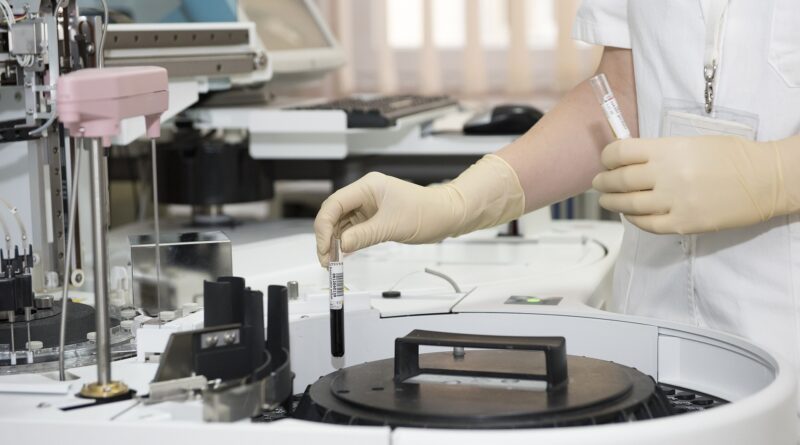Medical Industry Automation: 5 Powerful Ways It’s Transforming Healthcare Efficiency

Table of Contents
introduction
Finally, everything is moving towards Automation, but medicine needs to catch up. Medical Industry Automation is giving new shape to the healthcare system, and technology breakthroughs are making it happen rapidly.
Alaas, and thank goodness, there has been a lot of focus on Automation and its potential role in improving operational efficiency, cutting down the time it takes to do basic tasks, and increasing the probability of good patient outcomes.
A great deal of attention has been, and deservedly so, granted to Automation’s role in improving operational efficiency, from saving time on day-to-day tasks to expanding the likelihood of positive patient outcomes.
No longer are the hours spent sorting through stacks of paperwork and doing countless manual hours worth of work. Thankfully, Medical Industry Automation with sturdy software are currently covering repetitive chores, so the medic of tomorrow may use his energy on the essence, which is people.
But the question remains: How is this transformation happening? Here are the top five things Automation in the medical Industry is doing to improve healthcare efficiency.
1. Increased patient contact with shorter time controls (created a more hands-on environment like it should be, less paperwork)
The closest automated criterion of Automation in Healthcare is time savings on administrative obligations. Whether you handle patient stats, appointments, billing, etc., the automation tools take off your load as relevant.
Just accept as accurate how much time clinical docs or clinicians have wasted filling out bureaucracy or searching out files. Then, in the age of Automation, many of those steps may be accomplished immediately.
Take, for example, electronic health records (EHR). Gone are the days of running via paper documents to find patient records. It saves time and limits human errors, given we are all prone to feeling under the weather.
2. Surgery is an art where robotic surgery is best
When you think of Automation in health, your mind may automatically go to robots performing surgery.
Automation in the Healthcare Industry—And you’d be right! The Evolving Face of Future Surgery in the Era of NewAge Robotics NewAge robotics take part in the operation and aren’t fully automatic. Still, they allow the surgeon to manoeuvre with unprecedented precision and control.
For example, the Da Vinci Surgical System enables surgeons to carry out complex surgical strategies through tiny cuts, resulting in faster recuperation times and less patient pain. Robots never get tired, hands are usually regular, and most certainly, no coffee smash is required—resulting in impeccable outcomes.
Bottom Line: Robotic surgery is excellent for exacting operations requiring a good at which we may helpfully become confused about the (touching) point or in areas where our human fingers/hands are not quite delicate to wield, such as listening surges and spotting and collecting. Cancers extraction).
3. Speedier, More Accurate Diagnosis Through Automation
Once, tests and results took days—sometimes even weeks. Patients were left in a stressful limbo while their doctors, of course, had to wait until they knew what ideal treatments to provide.
This is no longer the case with the Medical Industry Automation.
Laboratory automation systems are reducing the time required for everything from blood tests to genetic screenings. Medical Industry Automation also increase the speed and accuracy at which information is displayed.
Machines no longer get tired, diagnostics have fewer errors, and patients have more effective results.
Fun Fact: Automated diagnostic gear can go the extra mile to catch a sickness at its inception, permitting medical doctors to intervene early and prevent fatal situations, including most cancers or diabetes.

4. The Next Frontier of Medicine: Telemedicine
The days you waited for weeks to get an appointment with a doctor are long gone. In this area, intelligent Automation and digital technology will be deployed everywhere to automate healthcare today; what telemedicine and Automation have given to the scientific sector is undoubtedly a tale of success.
Telemedicine: platforms are a new way for sufferers to talk with doctors, get identified, and even get prescriptions without leaving domestically. This has proved especially significant during face-to-face constraints due to the COVID-19 pandemic.
Arrangements: I just completed NOWAITINGROOMS from my room. From here on out, you need to hang tight to your Wi-Fi signal, but not anything related to website online stacking speed.
Telemedicine is helpful and allows patients in rustic regions to access better medical care that may be out of reach due to distance.
5. Imagine Predicting Problems Before They Occur (AI-Based Predictive Analytics)
One of the best things about Automation is catching problems before they happen. Track work using AI-powered predictive analytics. Tally facts to predict patient needs, guide resource allocation, or predict the next hospital outbreak.
AI models, for example, can sort through past information on patients and detailed summaries of their health from the present day to forecast who is likely to suffer a future illness. This can help doctors make a diagnosis earlier and potentially save lives.
Big Idea: AI can respond to the problem and predict (via machine learning), which is a head start for the provider side of prevention in healthcare.
Predictive analytics can also help hospitals manage their resources better. Hospitals can know well in advance before flu season approaches. How many extra nurses will they need without waiting to fill last-minute positions?
FAQs About Medical Industry Automation
1. Do you need clarification on what medical industry automation is?
On the other hand, medical industry automation is using more advanced technology to complete tasks, processes, or steps in a quicker and higher quality way of being administered by taking out the potential for errors.
Medical Industry Automation Processes — eliminates manual effort and helps healthcare providers focus more on actual patient care and less on day-to-day routines.
2. Why Automation has impacted efficiency in healthcare?
Chart: Cutting down Paperwork & Diagnostic Accuracy using Automation.
Not at all. They perform medical services to assist the experts and attendants rather than supplant them.
While they provide velocity, accuracy, and consistency, a human (who you would still need on board to drill into the metrics behind your judgments) might be required to evaluate the measurements that serve as inputs for comprehensive evaluations.
3. How Are you at Risk in Automation in the Medical Industry
Though Medical Industry Automation has many benefits, it also has some cons: CONS: Automation Failures, Security Risks, and Job loss. However, properly planning, educating, and implementing a few guardrails can be drastically minimized.
4. So, the next question is: Does Automation affect cost-cutting in healthcare?
Medical Industry Automation can cut healthcare costs by simplifying processes, improving performance and lowering errors. Nevertheless, the initial introduction of that technology could become quite costly.
5. Automation of Medical Industry — Telemedicine?
Telemedicine: Medical Industry Automation that Works This company leverages the technology to provide remote health care, offering patients an easy way to access care from anywhere.
6. AI in healthcare automation?
He is hip to it; AI has been a mover and shaker in Medical Industry Automation, from predictive analytics to diagnostic tools.
Al can perform this sort of thing. We can analyze a vast amount of data quickly, and not only this, but healthcare professionals can make better-informed decisions.
7. Here are two words: a new rebirth of medical Automation or death?
Absolutely! Of course, robots are only a part of the hardware and connectivity upgrade, an adjunct benefit to efforts to revolutionize access or quality in healthcare.
Automation is becoming Popular in Healthcare; it contributes to efficiency and better patient outcomes. Technology is helping us Medical Industry Automation hospitals and doctors.
Conclusion: We move towards the future of automated
As we have seen, it can revolutionize the health sector from administrative work to state-of-the-art life-saving surgeries. Even better, more technology is still to come! The idea of robots and AI administrative models in the medical field can be intimidating, but believe me.
These methods were developed to function as complements, not substitutes, for the people even we rely on.
Since we are increasingly focused on being as efficient and high-quality as possible in our deliveries, automating the processes is a no-brainer, especially in the medical sector. And who knows? Perhaps the machines will care for us (hopefully excellently!).
Therefore, be it to speed up diagnostics, utilize robots to help surgeons with precision, or allow patients to receive consultations from a couch, Medical Industry Automation is changing the future of Healthcare one automated process at a time.

